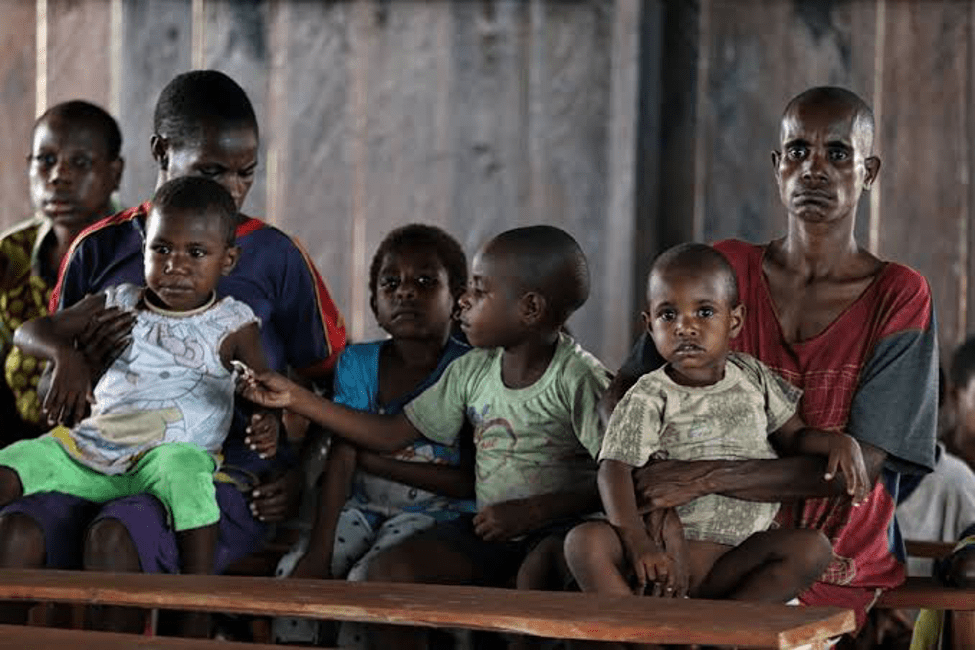Jayapura – Stunting is a condition when children experience growth retardation, so the problem they experience is not only a matter of shortness but also malnutrition. Stunting is characterized by a child’s length or height being below the set standard. Stunting occurs when a child’s height is below the expected growth curve. Risk factors for stunting include long-term inadequate nutritional intake, as well as an unfavorable social and health environment.
Symptoms of stunting in children:
- The child’s height is shorter than the height of children of the same age
- Weight does not increase consistently
- Delayed stage of development
- Slow development of physical skills, such as rolling over, sitting, standing, and walking.
- Delayed development of social and mental skills.
- Tend to get sick more easily due to decreased immune system.
- Physically less active in moving.
- Experiencing chronic cough, fever, and excessive sweating at night.
- Cyanosis, which is the child’s body that lacks balance.
- The child’s height and weight are far below the average for children their age.
In some cases, stunting can also lead to more serious health complications, such as obesity, reproductive problems, fatigue, inactivity, susceptibility to viral or bacterial infections, diabetes, cancer, and childbirth problems as adults.
The Papua Provincial Government (Pemprov) asked the district/city Regional Government (Pemda) to immediately accelerate the reduction of stunting rates so that the younger generation on Cendrawasih Island can grow and develop better. Acting (OK) Regional Secretary (Sekda) of Papua, Derek Hegemur said because the handling of stunting is related to child growth and development that it must be the concern of all Regional Governments (Pemda).
The allocated budget must also be adjusted to the financial capacity of each district/city. According to Derek, his party will ensure that the Papua Provincial Government has allocated the budget sourced from the Special Autonomy Fund for health management. Everything is in health management so that it becomes a commitment to reducing the stunting rate in Papua Province.
To prevent the potential for stunting, in a better way and so that the planning and distribution of the budget is right, and targeted, then his party will look based on the severity of stunting in each region. Meanwhile, the Head of Development Planning, Innovation, and Research of Papua Region Yohanis Walilo said that district/city governments must prioritize the budget to handle stunting.
According to Yohanis, district/city governments must also manage the budget allocation for handling stunting carefully because local governments know exactly the stunting situation in the field. How to treat stunting in children includes:
- Correct stunting before the age of 2 years: Implement clean and healthy living behaviors (PHBS), such as washing hands with soap and water, especially to prevent the spread of diseases that can cause stunting.
- Breastfeeding: Breast milk plays an important role in a child’s growth. Breast milk contains nutrients that are necessary for a child’s growth and development.
- Correct breastfeeding problems: If the child is having problems breastfeeding, then correcting this can help increase the intake of nutrients necessary for growth.
- Give animal protein preparations in complementary foods: Complementary foods containing animal protein can help increase the intake of nutrients necessary for growth.
- Routine immunization: Routine immunization can help increase children’s immunity to diseases that can cause stunting.
- Monitoring child growth and development: Regular care and monitoring of child development can help detect stunting early and take appropriate action.
- Clean and healthy living behavior: Implementing clean and healthy behaviors can help prevent the spread of diseases that can cause stunting.
- Using healthy latrines: Implementing environmental hygiene and using healthy latrines can help prevent the spread of diseases that can cause stunting.
- Address child health issues: Address child health problems associated with stunting, such as indigestion, using methods such as tube feeding.
- Always increase health knowledge: Increasing your health knowledge can help you understand the importance of providing the best food and drink sources for optimal child growth.
In some cases, stunting can also lead to more serious health complications, such as obesity, reproductive problems, fatigue, inactivity, susceptibility to viral or bacterial infections, diabetes, cancer, and labor problems later in life.


